The makers of Hardspace Shipbreaker are trying to crack a new take on the roguelike deckbuilder
In Earthless, Blackbird Interactive is searching for a new sci-fi strategy frontier.
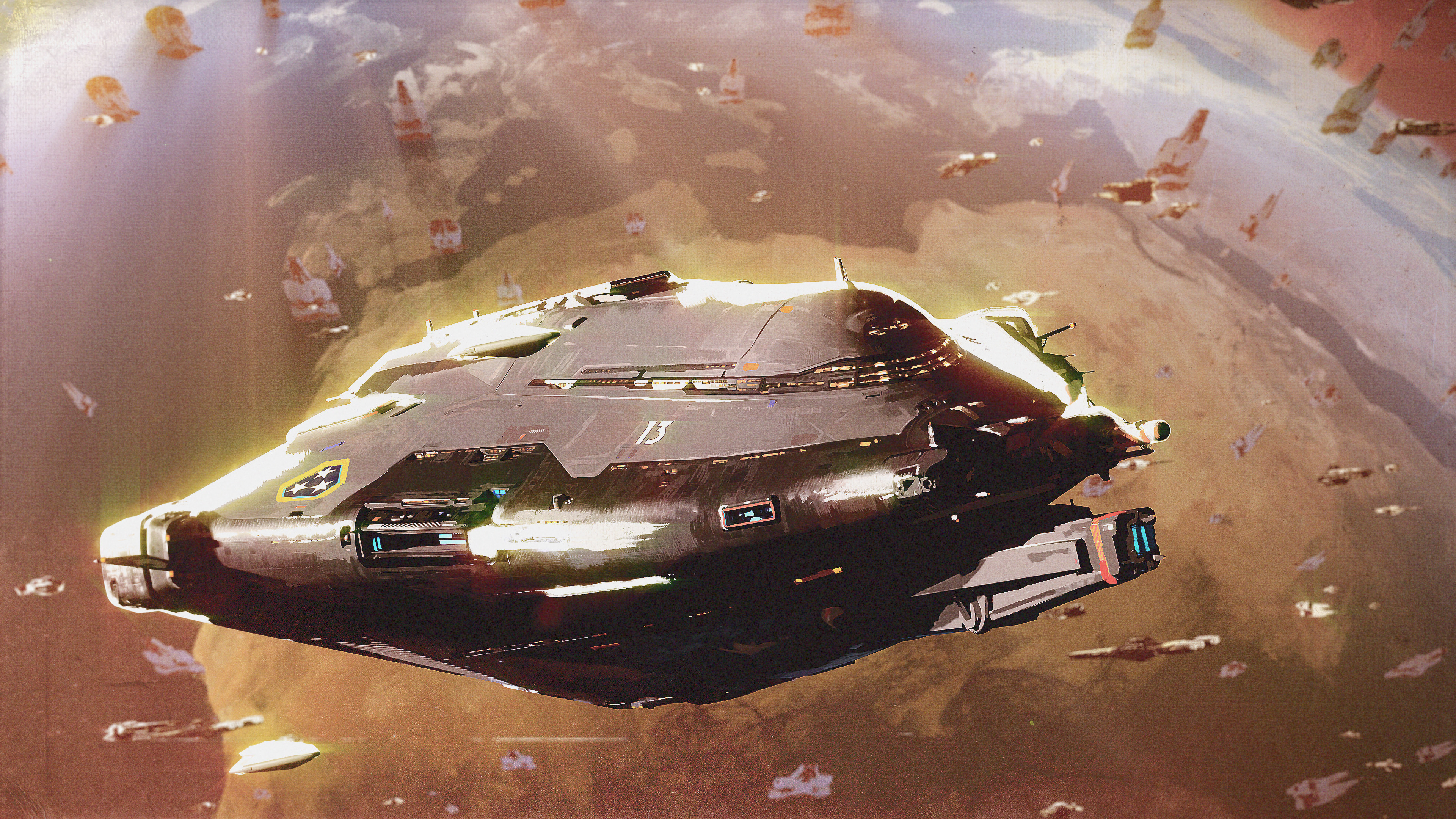
I'm the first journalist in the world who's laid hands on the new sci-fi strategy game from the studio behind Hardspace: Shipbreaker and Homeworld: Deserts of Kharak, and I've just broken it to pieces in front of them. I'm having a great time.
Every time I preview a game that has unfinished art and narrative dead-ends scattered around like landmines, there's the potential for an awkward moment where the game flat-out breaks. The developers have to take control to sidestep a bug or reboot after a crash; they apologize, keep it light with some smalltalk. In Assassin's Creed Valhalla I once got stuck in a barrel for 15 minutes.
Earthless, though, which is a hybrid of a roguelike deckbuilder and a grid-based strategy game, hasn't bugged out or airlocked itself straight to desktop. I've just stumbled onto a card combination that the developers clearly didn't expect, steamrolling my way to the end of a climactic boss fight before an enemy ship managed to so much as scratch the paint on my hull. "You should take notes, Rob," jokes Earthless director Hoi-Fung Ma. Apparently art director Rob Aduna had never tried what I would soon dub the Shield Meta.
Like every great deckbuilder and pretty much every roguelike, Earthless is at least somewhat built to be broken. Chasing the high of a magical card combo is what makes these games so compulsively replayable, and that basic pull is already here.
Early in my run I found a card that let me overcharge my ship's shields so that they would stay up between rounds rather than resetting to zero. Then I found an artifact that granted me five bonus shields, which I affixed to the one card in my deck that cost no energy to play. Last, the pièce de résistance: an attack card that let me detonate my overcharged shields, dealing big damage to any adjacent enemy. Suddenly the shield cards I had in my starting deck were keeping me safe and letting me pulverize the enemy to dust.
It was a satisfying first go at Earthless, if I ignored how much was clearly still heavily work-in-progress. The tactical grid where I position my ship is full of vaguely turd-like asteroids and alien vessels that float like lifeless lumps, animations yet to be implemented. Card art and icons need more work to clarify status effects and synergies.
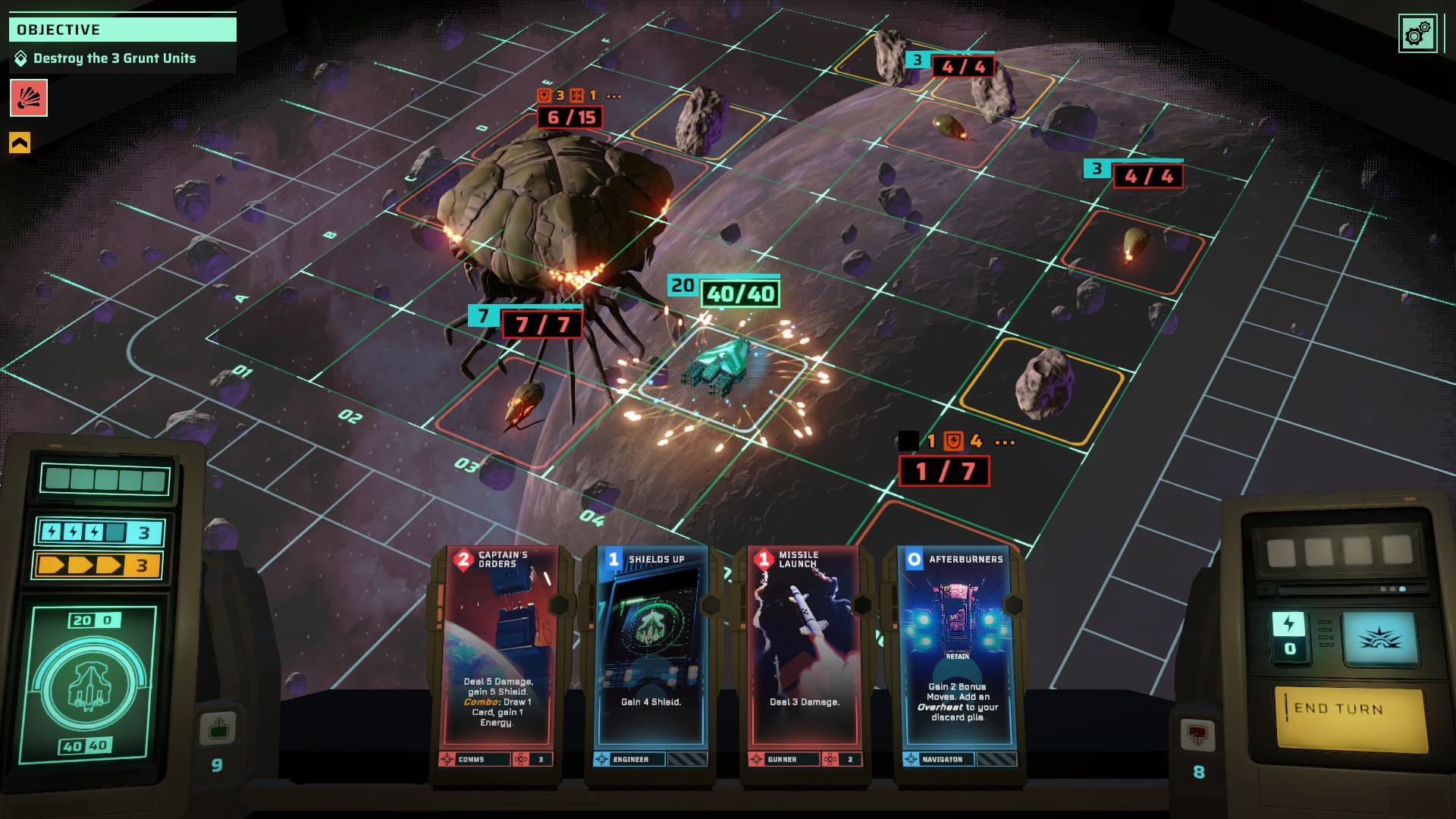
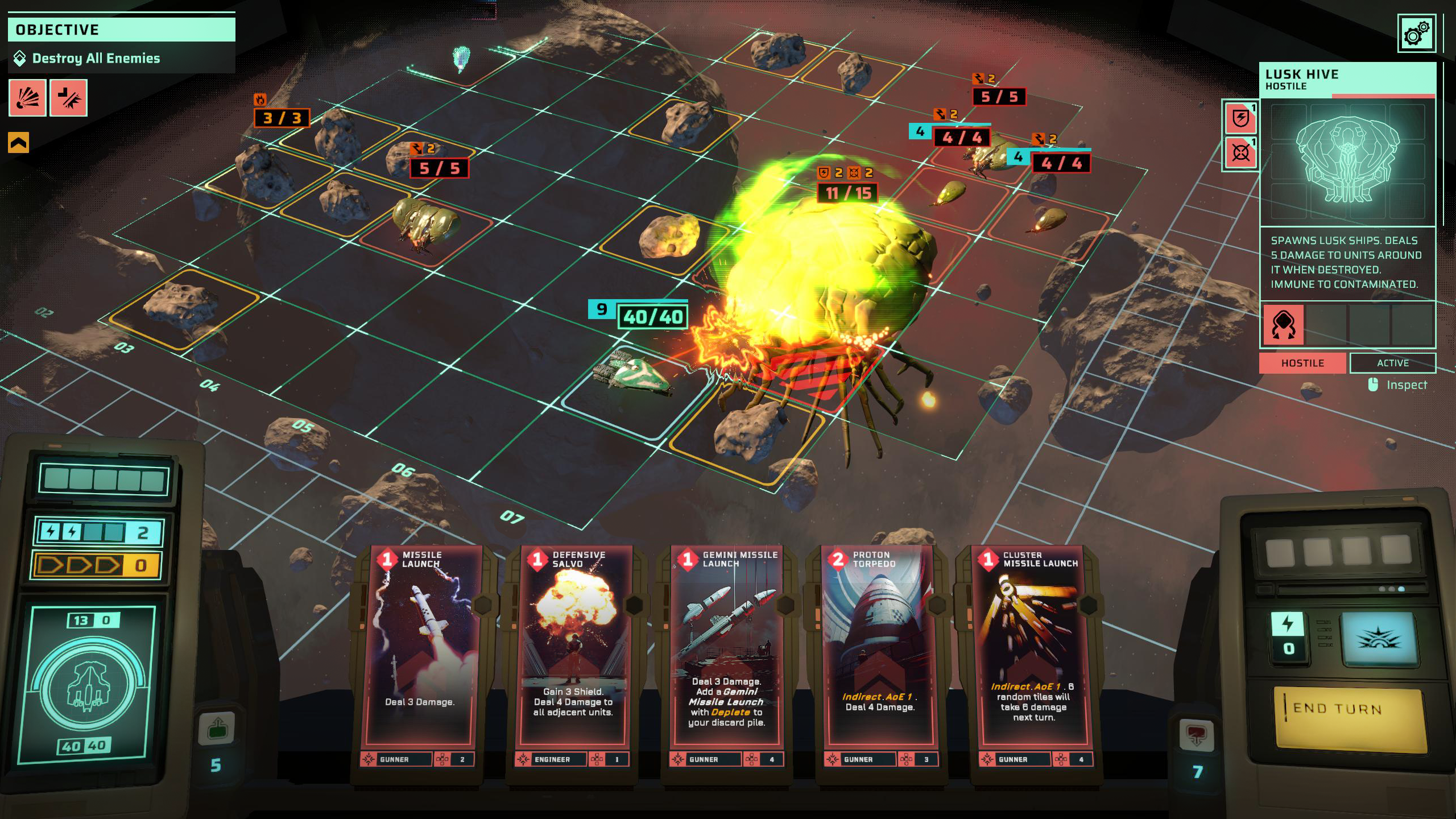
And this is only half of what Earthless hopes to be—the other half is a light narrative sim where your decisions, as captain of the ship, affect your crew, and their happiness in turn helps or harms you in battle. That part of the game, too, is early and not yet deeply "hooked in" to the card combat. But it's where Earthless's real potential lies.
Keep up to date with the most important stories and the best deals, as picked by the PC Gamer team.
"Right now it's the skeleton of it," says Ma. "There are a lot of interesting interactions we can already have between the moment-to-moment gameplay and the metagame systems around crew morale. But what's really important for Earthless, and BBI games in general, is making sure there's a sci-fi context around it, and I think that's going to be the thing that will grab people that don't tend to play these types of games."
Taking the chair
Blackbird is unusually forthcoming about just how many mistakes it takes to get a game right
Earthless's cards, for example, aren't meant to be abstract—they're command chips you're slotting into a terminal to direct your ship. "It's all part of that captain fantasy: Immerse them into the chair and they're giving orders to their crew," says chief strategy officer Trey Smith, who's been helping Ma, a first time game director, mold what started as a prototype more than two years ago.
Aduna chimes in with some practical examples of how Earthless will evolve. "When you discard, the cards just kind of float up on the screen to nowhere, right? Those are the kinds of things we want to solve for. Maybe it's a physical tray that comes up… We're going towards a Ron Cobb, very retro-futuristic vibe that has a grounded nature to it, and we feel that starting to solidify. That's going to happen with other features of the game that haven't been fleshed out yet."
Right now Earthless follows a structure familiar from Slay the Spire or FTL, where you progress across a galaxy map peppered with nodes that represent battles or little narrative moments. At the end of each map there's a boss like the one I shield-stomped; cross three star maps and you'll complete a run.
The narrative nodes can reward you with resources or artifacts, but also complicate relationships with your crew based on their personality traits. I ran into one event where I had to choose how careful to be with the cryotubes of some of my ship's passengers, with the more cautious choice netting me some card-crafting resources but displeasing one of my officers.
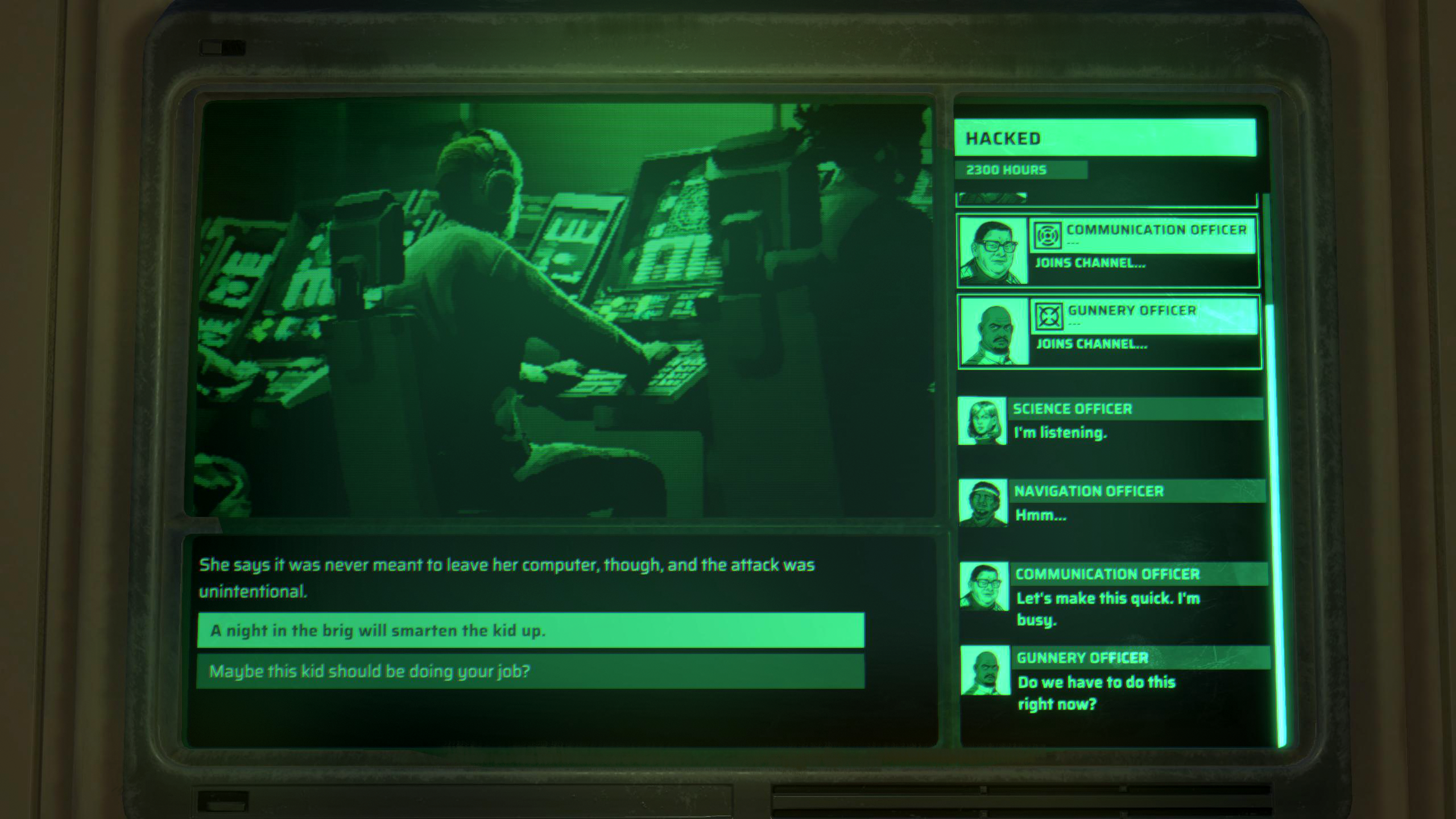
"Eventually we want it to be a lot more complex in terms of chaining events, so that your reactions to certain events will have consequences later in the level," says Ma. The moral choice could pay off now but backfire later, for example, with a crisis in engineering because we diverted too much power to protect those passengers in cryostasis.
At this stage in Earthless, your crew's opinions don't have much bearing on the rest of the game, but the plan is for them to chime in during battle, and maybe even add cards to your deck. "If the pilot agrees with your choices, maybe you get an extra move per turn," says Smith. "But if they're pissed off, all of a sudden you've got one less move per turn… so you've got to make a choice like 'Do I side with this crew member who I think is an asshole just to make this extra move?'"
Zeroing in
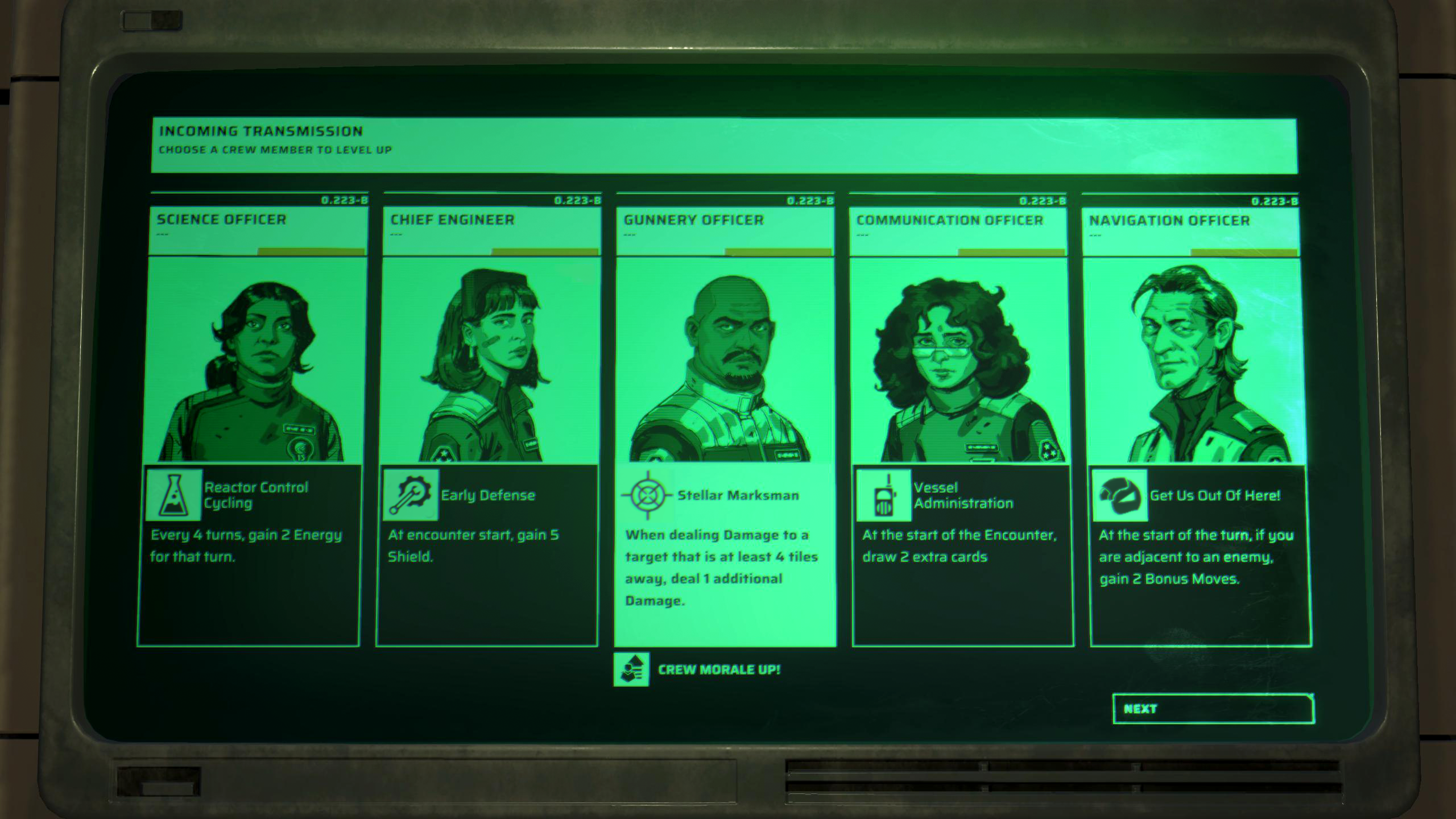
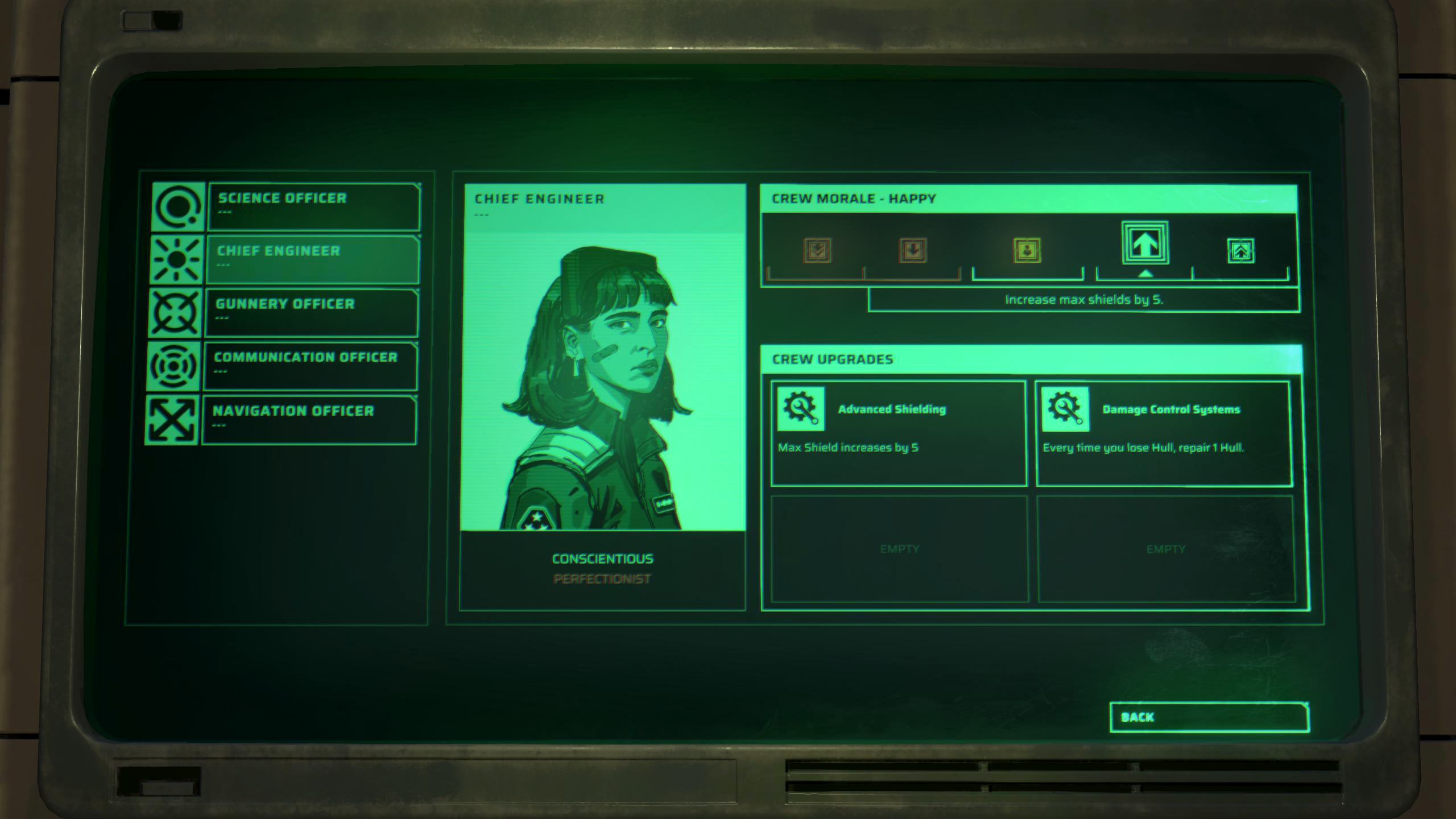
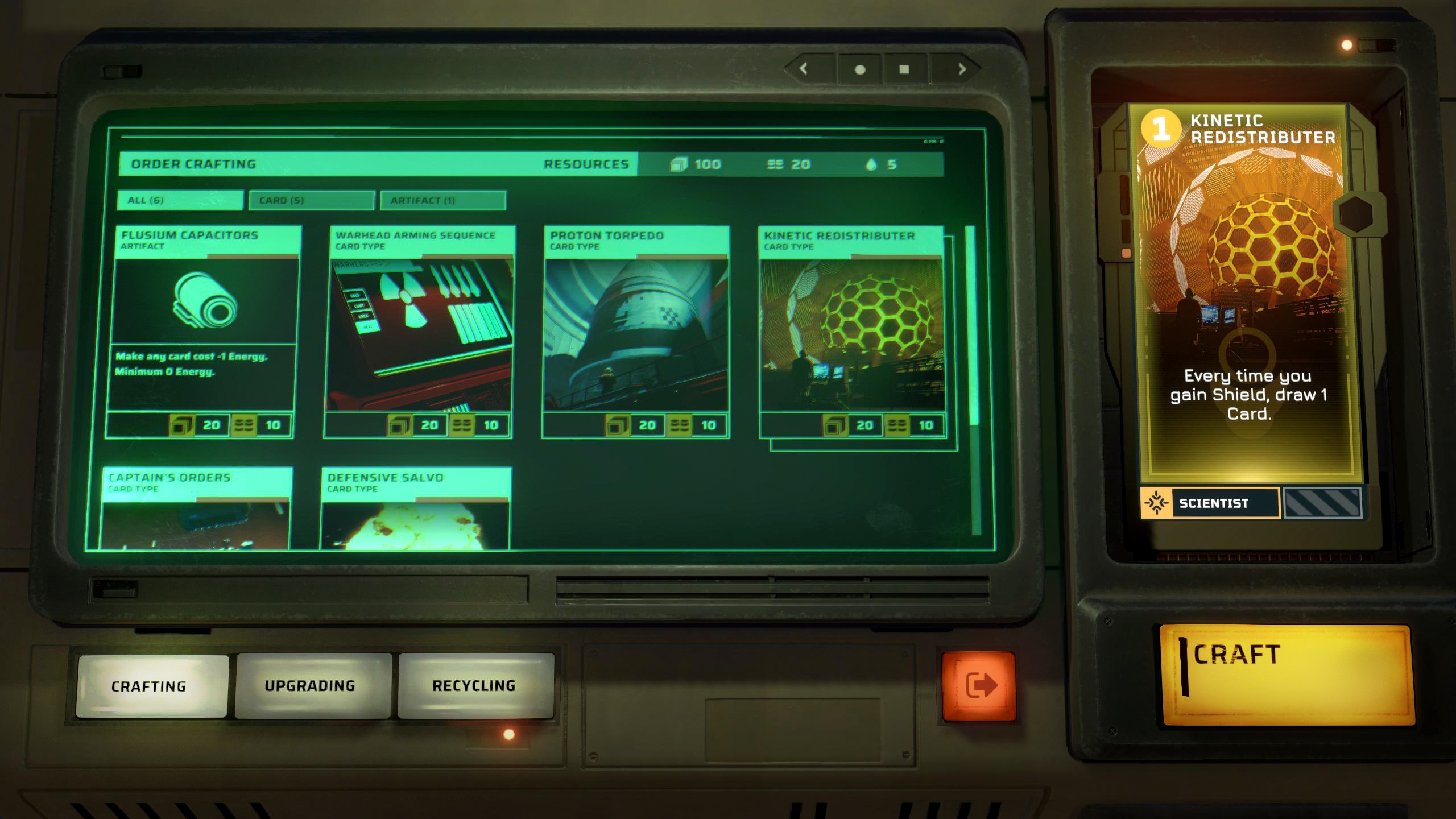
Blackbird is unusually forthcoming about just how many mistakes it takes to get a game right. Big pieces of Earthless have only recently been nailed down despite more than two years of iteration. Ma built his first prototype with physical cards (well, printer paper stuffed into Magic: the Gathering card sleeves) and initially envisioned controlling a small fleet. But he found that tactics game players wanted to control all their units on the board while ignoring the cards, while Magic players would lay down their units and then wait for things to happen rather than controlling them.
Switching to one ship helped connect those two pieces but also had its own creative dead ends. "We had the idea that we needed variety, so we needed to make a modular ship system," says Aduna. "But at the end of the day, we're playing the game and it's like… you know, it's not really doing anything. So let's make bespoke ships that have a lot of personality."
Designing engaging variety rather than procedurally generated sameyness is the eternal challenge for roguelikes, and here again they learned the hard way. The first levels Ma designed had scripted events like an ambush when you reached a point on the map. "It was great for the first time, but it sucked for repetition," he says. "You already know the surprise! The philosophy changed after that, where these needed to be more like arenas. The units can change, the mutators can change, and that gives it the ability to repeat without being too boring."
Even the "captain fantasy" element only clicked into place six months ago, when someone in a meeting said "You can't be a captain unless you have a crew." It may sound obvious, but it changed their perspective on the crew's personalities. "If you're a captain and you don't care about your crew, that's almost like not having a crew to begin with," Smith says. "So what are some things we can do to make you care about them? That was a big one, making that decision to start playing up the crew and the roleplaying side of being a captain."
This is the run
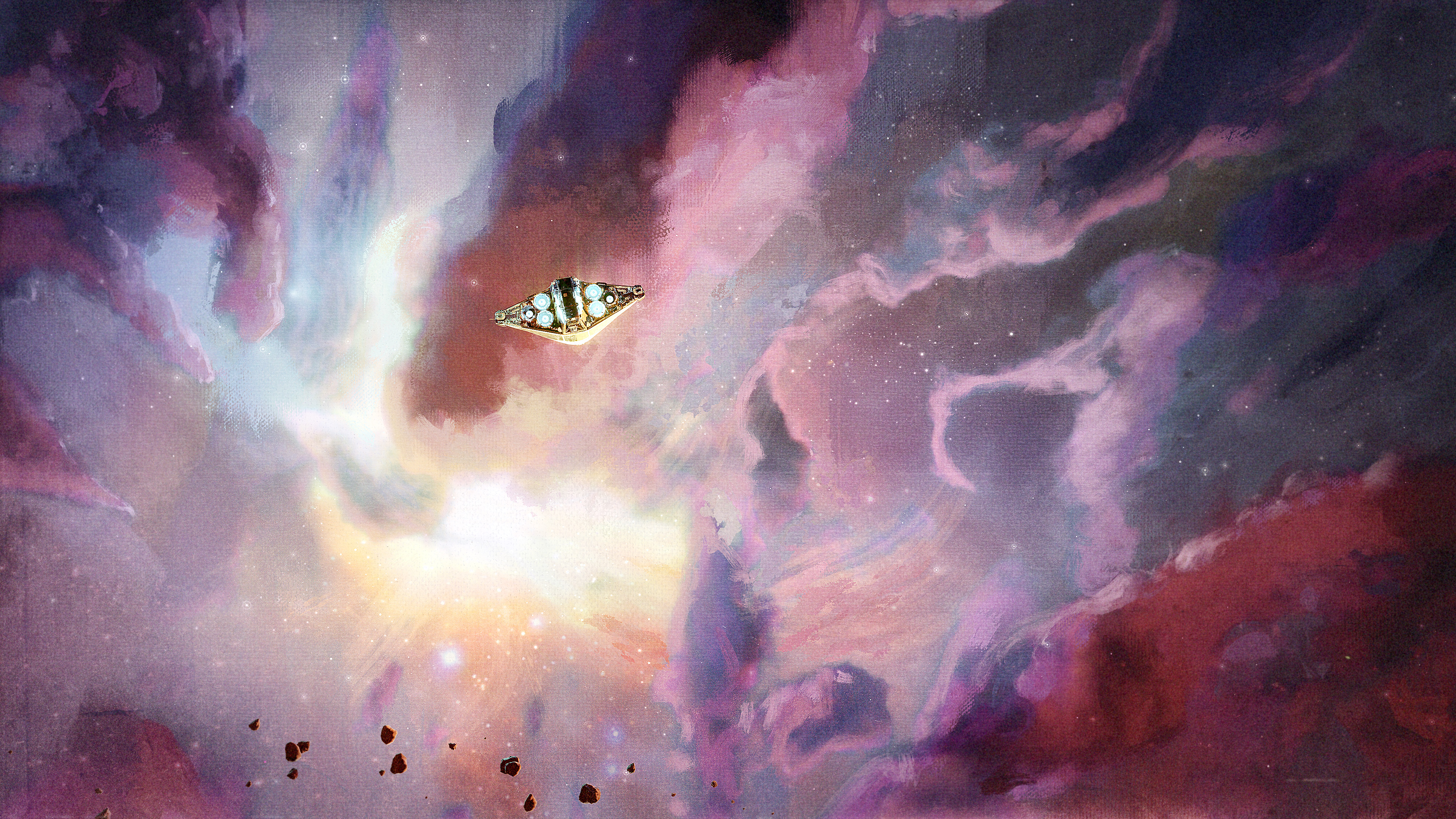
Earthless's premise is that, with the destruction of our home world, humanity has sent thousands of seedships out to galaxies unknown in search of a new beginning. Each run you play will put you in command of one of those ships: a different captain, a different crew. It's a tidy bit of sci-fi theming for a roguelike, but also struck me as a fitting metaphor for the iterative process Earthless is still going through, on its way to an early access launch where it will no doubt change even more.
The version of the game I played didn't yet have what it takes to establish a new colony in a corner of space as competitive as the deckbuilding quadrant. But the right ideas are all there; Earthless's team seems to have worked out the star chart they need to put their ship on the correct course. All that's left now is to see it through.

Wes has been covering games and hardware for more than 10 years, first at tech sites like The Wirecutter and Tested before joining the PC Gamer team in 2014. Wes plays a little bit of everything, but he'll always jump at the chance to cover emulation and Japanese games.
When he's not obsessively optimizing and re-optimizing a tangle of conveyor belts in Satisfactory (it's really becoming a problem), he's probably playing a 20-year-old Final Fantasy or some opaque ASCII roguelike. With a focus on writing and editing features, he seeks out personal stories and in-depth histories from the corners of PC gaming and its niche communities. 50% pizza by volume (deep dish, to be specific).

